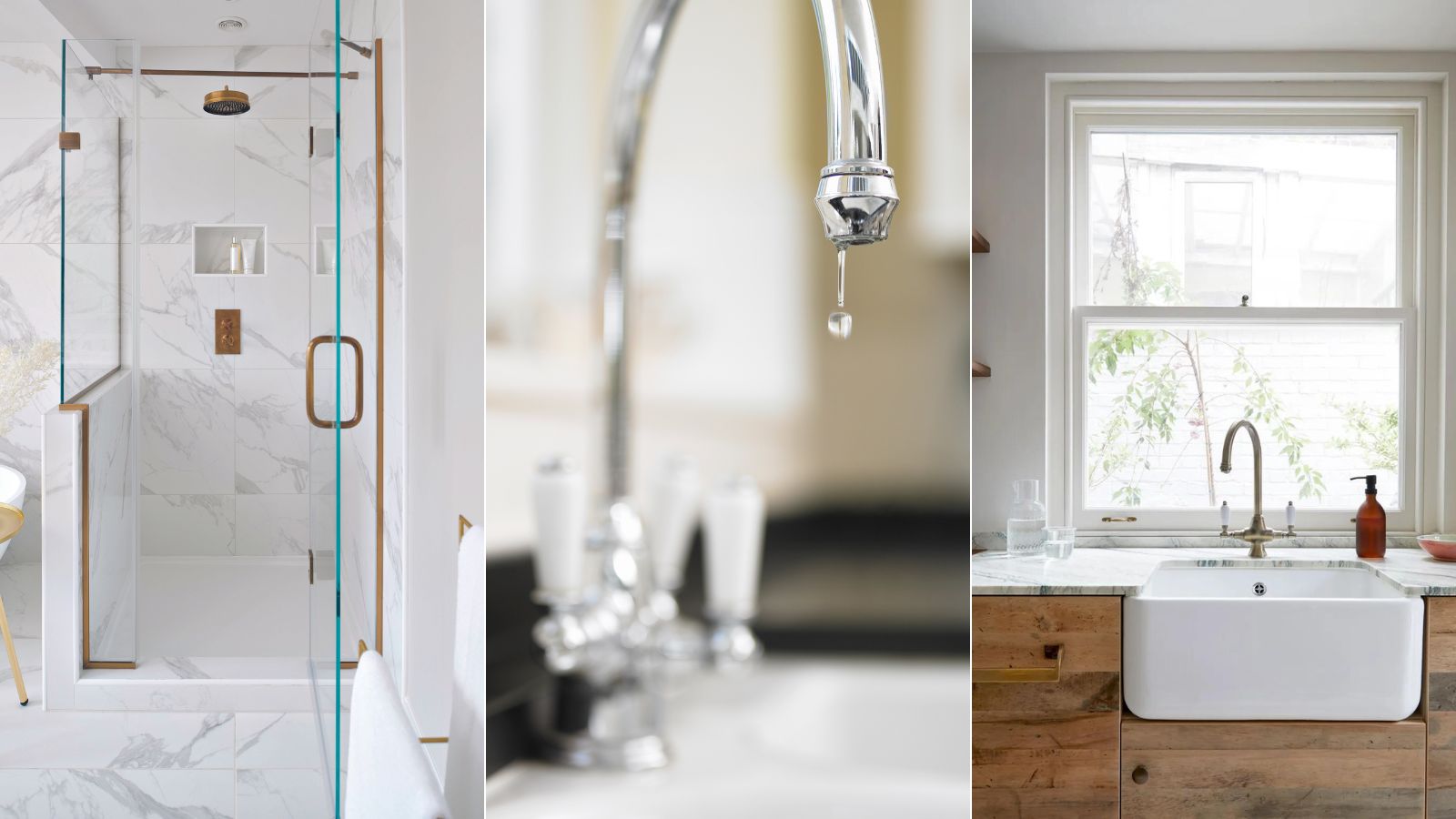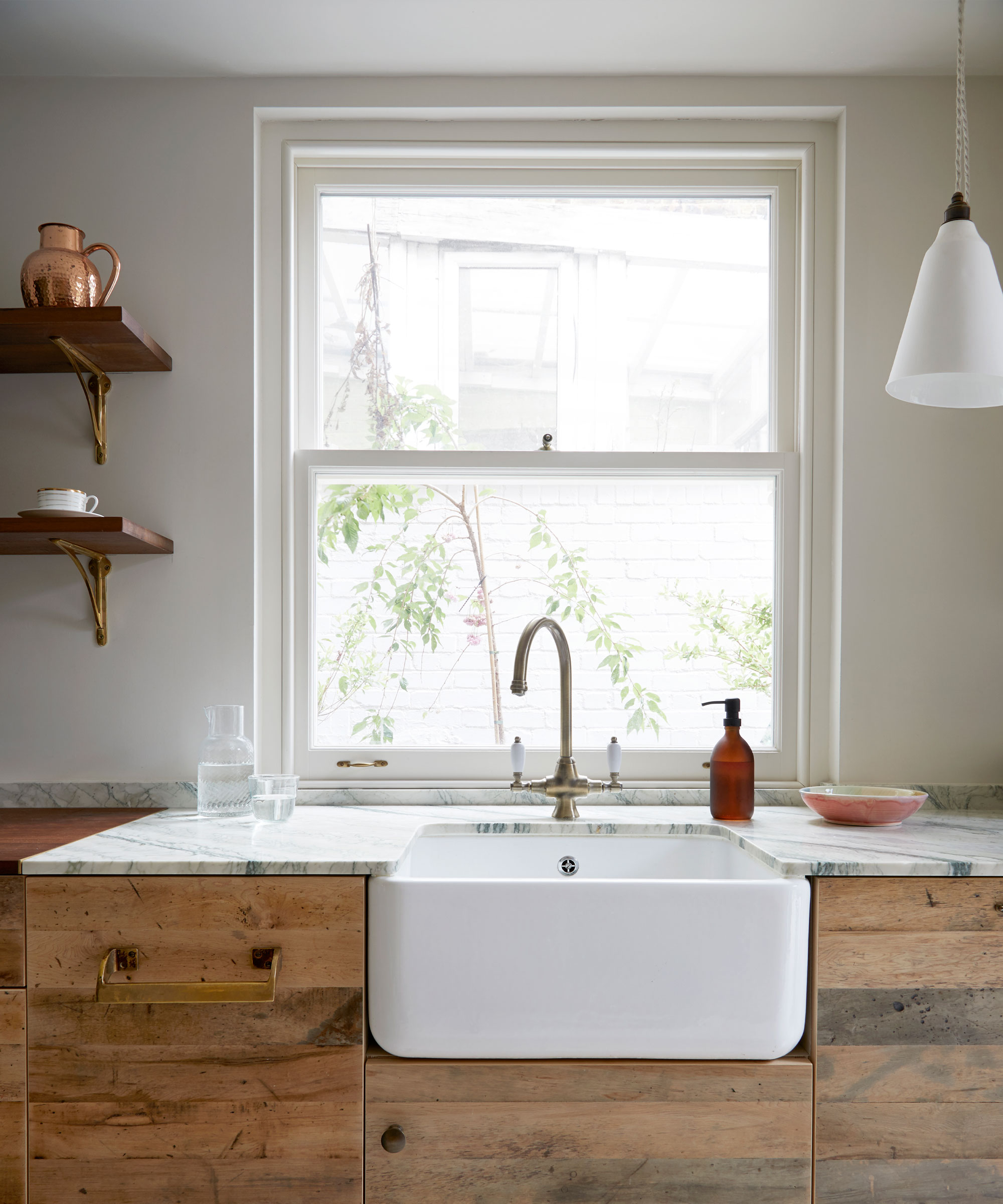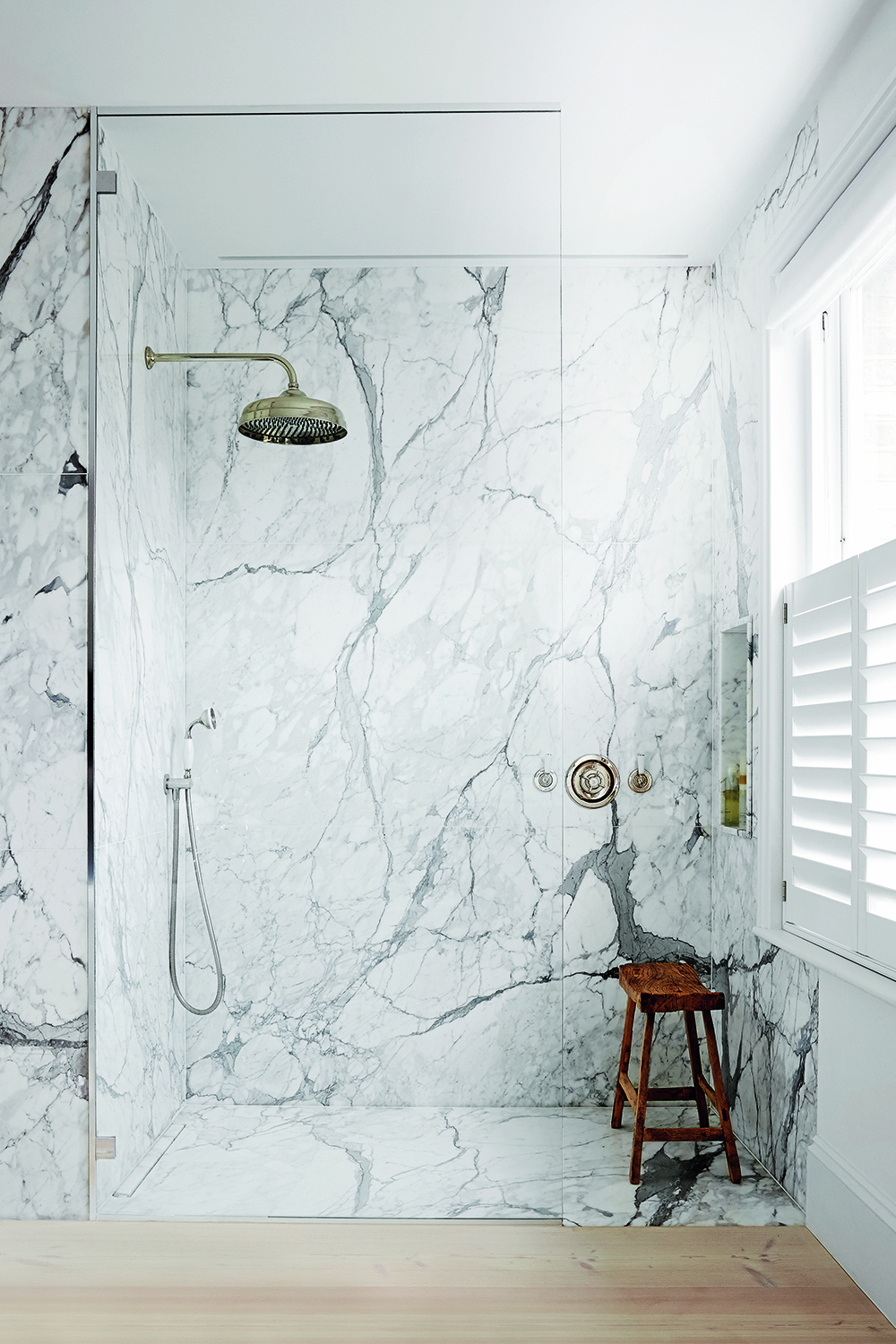
Have you ever discovered a drippy faucet in your bathroom or a leak under your kitchen sink? You're certainly not alone. It's estimated that the average US household could be wasting 10,000 gallons of water every year as a result of undiagnosed drips and leaks. Put into context, that's enough water for 270+ loads of laundry and almost 1 trillion gallons of water nationwide.
These staggering figures highlight how important it is to hunt down and address your household leaks before they start adding up – not just for the health of our planet but for the sake of your water bills, too.
The Environmental Protection Agency (EPA) has marked March 18 through 24, 2024, as its annual Fix a Leak Week. So, seize this weekend as the perfect opportunity to find and fix undetected leaks in your home.
Find and fix common household leaks
As part of Fix A Leak Week, The EPA has provided a handy guide to finding and fixing common drips and leaks in your home. Here's what it recommends:
How to hunt down common household leaks

Monitor your water usage: Keep a close eye on your water meter and check it before and after a two-hour period when no water is being used. This will reveal any hidden leaks in your home. For example, in the chillier months like January - March, a family of four using over 12,000 gallons of water per month may indicate something is amiss.
Add food coloring to your toilet tank: Adding a drop of food coloring to your toilet tank can expose silent leaks. If the color appears in the bowl within 10 minutes, you likely have an issue.
Surface checks: Regularly inspect faucet gaskets and pipe fittings for signs of exterior moisture, as this can help pinpoint minuscule leaks.
Fixing these issues can save you an estimated 10% on your water bills - so it's worth taking the time to locate and identify them.
How to repair common household leaks

Toilet leaks
According to the EPA, 'old or worn-out toilet flappers (e.g., valve seal) can cause leaks and lead to unnecessary water loss in your home.' Replacing a worn-out flapper is a simple and cost-effective fix. Check toilet flappers periodically and replace them every five years to ensure a tight seal.
This Fluidmaster 501 Performax Universal Toilet Flapper is only $5.52 at Walmart.
Leaky Faucets
The Drip Calculator from the US Geological Survey estimates that one drip from a kitchen or bathroom faucet every minute could waste 34 gallons of water per year – not ideal if you're looking to reduce your water bills.
Old washers and gaskets are the most common cause of leaky faucets. Thankfully, the solution to this issue is fairly straightforward, as outlined in H&G's guide to fixing a leaky faucet.
Showerhead Drips
A dripping showerhead is less than ideal at the best of times, but according to research by the EPA, 'a showerhead leaking at 10 drips per minute wastes more than 500 gallons of water per year.' Put into context, that's the same amount of water required to wash 60 loads of dishes in your dishwasher.
Pipe tape is a good short-term solution to this issue, as it's easy to apply and can help control leaks before you replace your showerhead. You can purchase pipe tape in most hardware stores or grab a roll of Wilmar Teflon Tape from Walmart for only $7.37.
Outdoor leaks
Unwanted drips and leaks aren't restricted to the inside of your home. If you have an in-ground irrigation/sprinkler system, the EPA recommends checking it during springtime (before use) to determine whether frost or frozen water has caused damage during winter. It doesn't take much to impact your water bills. If your system contains a leak as small as a dime in diameter, you risk wasting up to 6,300 gallons of water every month.
Learning how to winterize a sprinkler system may prove handy to prevent future damage. But if you suspect you have a leak now – or you aren't sure what you're looking for – we recommend hiring a professional to detect and correct leaks in the system.
Fix a Leak Week is a great time to start thinking about conserving water in your home, but you can hunt for and fix household leaks at any time of the year. Every repair made could help slash your water bills and is a positive step for the environment.







